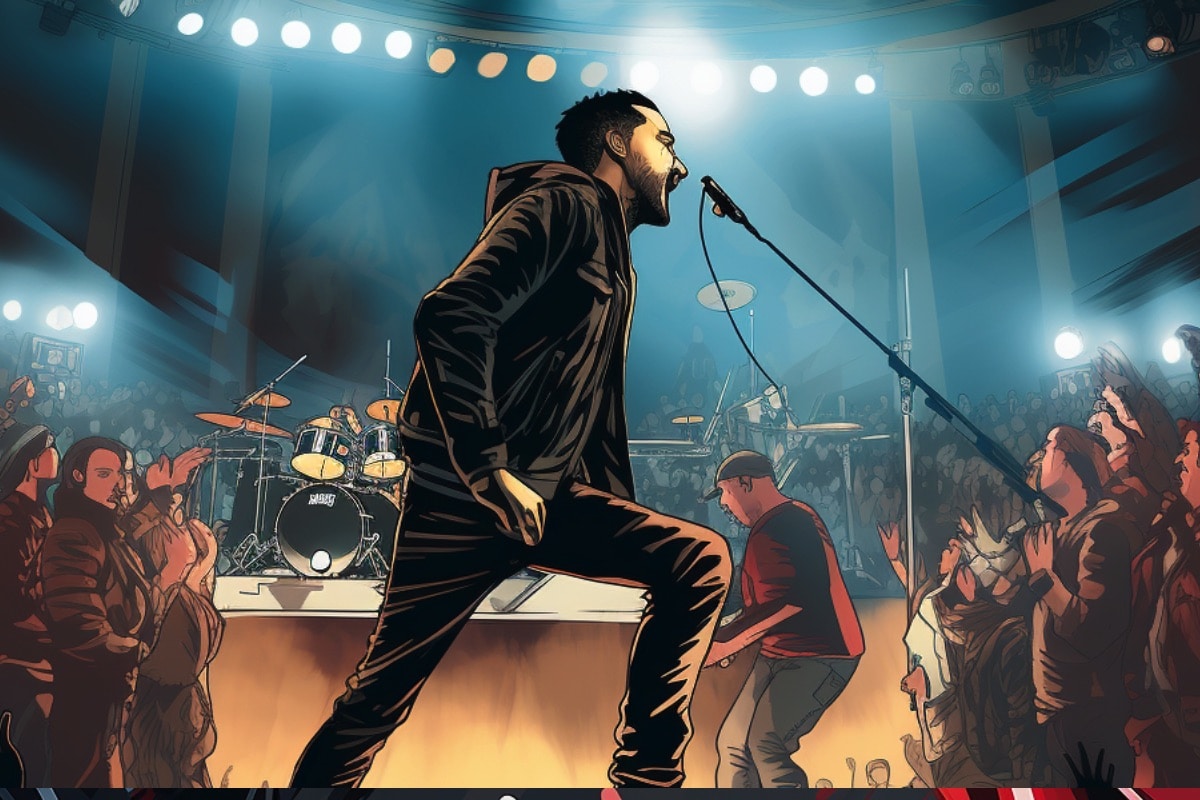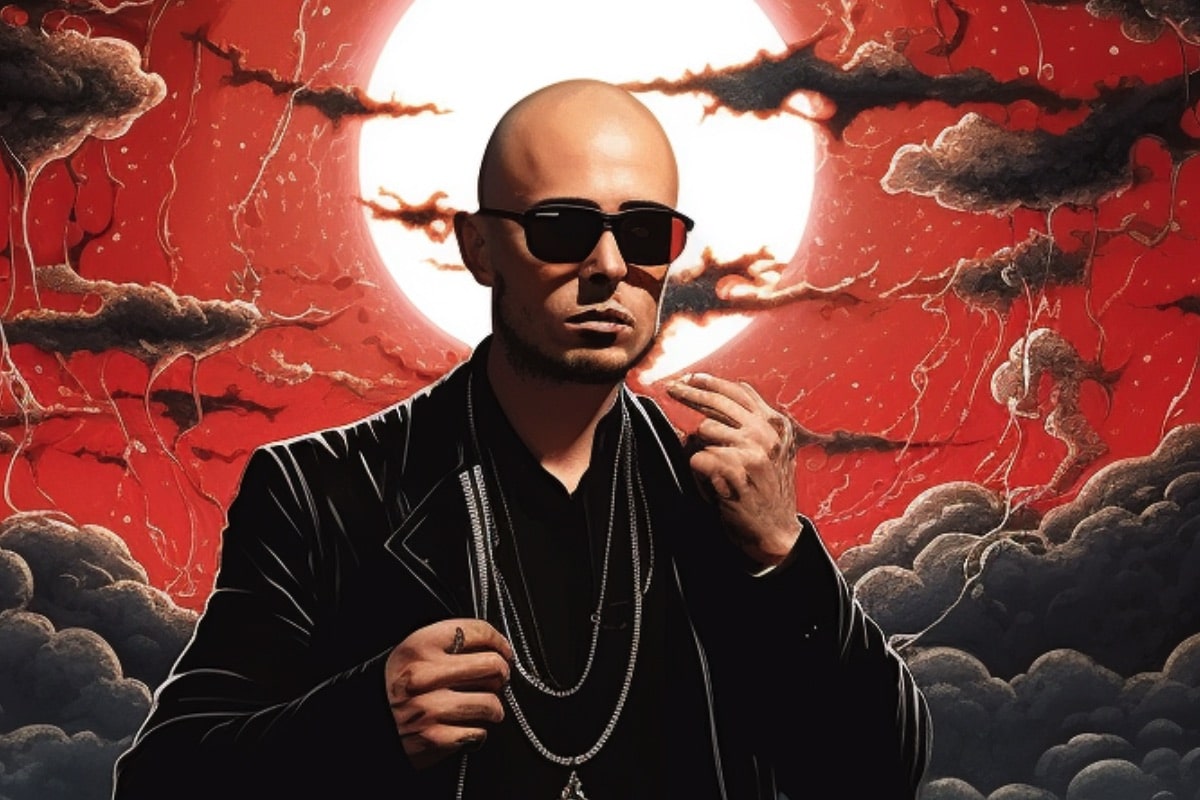Twenty One Pilots is the genre-blurring, chart-topping duo known for weaving a rich tapestry of sound. Drawing influences from pop, rock, rap, and electronic music, their songs have struck a chord with a global audience. Behind their explosive popularity lies an extensive catalogue of tracks packed with raw emotion, deeply personal lyrics, and a distinctive sonic identity. Tracks like ‘Stressed Out’, ‘Car Radio’, and ‘Heathens’ propelled them into stratospheric stardom, encapsulating their ability to craft relatable anthems rife with visceral narratives.
However, deeper within their discography, gems like ‘Saturday’, ‘Migraine’, and ‘Lane Boy’ showcase their artistry and innovation. This list aims to rank their top tracks, taking us on a journey from high-energy hits to introspective tunes.
So let’s get into it. From ‘Polarize’ to ‘Stressed Out’, here are the Top 25 Twenty One Pilots Songs Ranked, from Worst to Best.
25. Polarize
This infectious reggae-inspired track centers on the trope of polarity, carving a narrative centered on the struggle to separate ‘right’ from ‘wrong’, desire from denial. The protagonist feels caught between ‘where to die’ and ‘where to fight’, reflecting an eternal human conflict: grappling with inner demons and the desire to be a better person. Whether it’s being a better son or triumphant against the ‘evil’ within, the lyrics encapsulate a poignant emotional struggle, cloaked in catchy beats and vibrant energy. Despite its low rank, its unabashed honesty about personal battles paired with the upbeat tempo epitomizes the band’s knack for raw storytelling within the pop realm.
24. Message Man
The song revolves around the theme of identity and struggle, a prevalent motif in their music. The lyrics encapsulate a sense of being misunderstood and on the run, a sentiment reflected in the line “You don’t know what I’ve done, I’m wanted and on the run”. This self-referential exploration is at the heart of the song, with the protagonist spiraling into a dystopian future, obsessing over existential questions. The song’s hook, “these lyrics aren’t for everyone, only few understand,” underscores the idea of belonging within a misunderstood minority. There’s a plea for discretion, a subtle nod to the deceptively complex nature of their music. This is Twenty One Pilots expressing themselves with raw honesty, showing their knack for creating thoughtful and intriguing pop music that goes far deeper than surface level.
23. The Judge
The track draws from the lexicon of folk-centric pop and is underpinned by an incessant ‘na-na-na’ catchiness that belies the depth of its lyrical content. The protagonist is caught in a state of confusion and moral disarray, pleading to an unknown “judge” to help navigate through the ambiguities of life. There’s a delicate balance between surrender and revolt, between divine accountability and self-condemnation. The devil and the self become intertwined, the identity of the greater evil left ambiguous. There’s a subtleness to this self-described ‘pilots’ struggle with direction – a wonderfully unfiltered admission of human vulnerability and the universal longing for guidance. Arguably, the song’s greatest strength lies not in its lofty musings, but in its depiction of the artist as profoundly, achingly human. Yet, it only lands at number 22 on our list, testament to the overwhelming quality of Twenty One Pilots discography.
22. We Don’t Believe What’s on TV
Conveyed in a catchy, whistle-filled acoustic vibe, the song deciphers the struggle of ambitions, dreams, and the fear of failure. The track is a testament to their ability to infuse raw lyrical honesty with earworm melodies, and an ode to the importance of authenticity and personal connection in a world that prefers to value looks and wealth over substance. After all—do any of us truly believe what’s on TV?
The lyrics expose the singer’s dread of losing authenticity while chasing dreams, their longing to hold on to what truly matters—real connections with people. And perhaps the biggest knockout punch delivered in the song? The radical idea of questioning one’s own mortality and redefining what it means to live. All in all, it’s quite the compelling tune wrapped in an unassuming package.
21. Guns for Hands
The metaphor of “guns for hands” encapsulates the theme of the song: people’s potential to harm themselves. The lyrics paint a vivid picture of Tyler Joseph, the lead vocalist, seeing the difficulty in the lives of others and grappling with his inability to fix their problems.
The song is a plea – an appeal to everyone battling these invisible foes, urging them not to surrender. It’s a shout-out to those who feel cornered, misunderstood, or unheard, urging society to put their fighting energy into music rather than self-destruction. In classic Twenty One Pilots’ style, the track combines introspective lyrics with catchy beats, highlighting the duo’s ability to approach heavy subject matters in an accessible and thought-provoking manner.
20. Fairly Local
True to the duo’s unconventional pop style, the song flaunts a layered narrative of self-reflection and rebellion against societal expectations, an emblematic trait cherished by their enthusiastic fan base, the ‘Skeleton Clique’. With its alternating self-derogatory and self-affirming verses, the song delves into the inner turmoil of identity, self-worth, and one’s place in the world. A major theme revolves around the struggle between one’s inner demons and their aspirations, suggesting that who we are is a complex mix of the good, the bad, and the ’emotional’. Unabashedly stating that the song will never be on the radio, the band embraces their unique, left-of-center style, highlighting the outsider’s perspective that so resonates with their loyal following. With a mix of moody synth lines and pulsating beats, “Fairly Local” remains a testament to Twenty One Pilots’ refusal to play by pop’s usual rules.
19. The Outside
Lyrically, it carries the duo’s trademark introspection, treading the fine line between isolation and ambition. It presents a protagonist seemingly disenchanted by the monotony, but equally resistant to the allure of conformity. The verses feature a swimming Megalodon and stomping Megatron – curiously captivating metaphors they use to reflect feelings of immense power, yet inherent out-of-placeness. Their creative prowess is magnified when they juxtapose these prehistoric and futuristic images against the backdrop of a summer street party. The infectious refrain of ‘up and down’, captures the rollercoaster ride of life outside the mainstream, and the unyielding will to keep one’s authenticity intact. It’s a testament to the band’s stylistic audacity, and their tenacious grip on alternative pop’s fringes.
18. Saturday
An ode to the freedom of weekends, and more specifically, the hedonism of Saturday nights, the lyrics, like a well-spun DJ set, are a celebration of life in the oft-controlled chaos of youth. A subversive take on the humdrum reality of Monday-to-Friday, the song is a metaphorical breakout from the norm. It’s about the euphoria of the weekend, personified by Saturday, which is painted with a sense of carefree escapism, a break from the humdrum and routine. Yet, amidst the carefree revelry, there’s a poignant undertone of fleeting moments and a longing anchored by the fear of losing touch. This song, with its vibrant lyrics, captures the essence of a generation balancing on the line of carefree youth and impending adulthood.
17. Migraine
It’s a raw and unfiltered insight into the tormented psyche of Tyler Joseph, revealing struggles with mental health and the pressures of achieving success. The song’s introspective lyrics paint a vivid picture of the internal battles waged in the minds of many. It hands over a stark and honest portrayal of depression, extending far from the surface level complaints of aching heads. It’s more about navigating the tumultuous waves of life, battling the crippling fears of existence and the comfort found in realizing that, despite everything, “we’ve made it this far, kid”. It’s not a song for light-hearted pop lovers, it’s a serious conversation starter about mental health, hidden behind intoxicating melodies and infectious drum beats.
16. Holding on to You
In a world that often fails to understand the complexities of the human mind, Twenty One Pilots take a bold step by using their platform to spark discourse on mental health. The lyrics take us on a journey into the psyche of the singer. It speaks about mental enslavement and the constant tug-of-war between the desire for control and the reality of one’s inner chaos.
The song’s distinct lyrical content also provides a raw depiction of reclaiming self-control amidst chaos. The lyrics artfully describe being surrounded and overwhelmed by various external influences, and the struggle to retain a unique identity amidst them. It serves as a reminder to think twice about one’s life, and encourages listeners to take control of their mental health, challenging societal norms that often trivialize mental struggles. In essence, “Holding on to You” is an anthem of personal strength and resilience, showcasing Twenty One Pilots’ strength in addressing serious issues through their music.
15. Level of Concern
The lyrics hint at a panic-stricken psyche, struggling with uncertainty. The repeated plea throughout the song, “Tell me we’re okay,” encapsulates the universal craving for reassurance. The song also introduces the concept of a ‘little quarantine,’ perhaps an endearing way to refer to a lockdown buddy or partner. At its core, “Level of Concern” explores themes of anxiety and the need for comfort amid chaos. The song is an irresistible blend of pop elements and a keen sense of the socio-political climate, further cementing Twenty One Pilots’ place in the pantheon of bands who know the pulse of their times. Its lyrical depth coupled with dance-friendly rhythms makes it a classic example of the duo’s genre-blending prowess.
14. Lane Boy
In true Twenty One Pilots fashion, the lyrics are laced with powerful messages of non-conformity. This track emphatically tells us that the band refuses to be boxed into a single lane. Instead, they decide to navigate the musical highway as they please, navigating their own path regardless of industry norms.
The lyrics cleverly expose the shallow nature of chart-topping pop songs that lack depth or substance. They highlight the tension between maintaining artistic authenticity and satisfying commercial interests. Furthermore, Twenty One Pilots reinforce the importance of being true to oneself over striving for perfection, suggesting that a flawless person or song can’t be fully trusted. This resonates deeply given the widespread issue of polished, yet hollow, pop music that pervades the airwaves.
The song prompts listeners to question the status quo, encouraging them to seek out music that goes beyond the superficial. “Lane Boy” cements Twenty One Pilots as rule-breaking mavericks, unabashedly advocating for creativity’s liberation from the industry’s constraints.
13. Jumpsuit
Coming in hot with a searing baseline and explosive drums, the song throws you in headfirst into their dystopian world of ‘Dema’, constructed meticulously throughout the album. The recurring pleading lyric — ‘Jumpsuit, Jumpsuit, cover me’ — emits an evocative call for help, signifying his desperate craving for protection from external forces. The song hits the crescendo with the active request of needing to be saved in the most explicit terms, symbolically asserting the tension between individuality and conformity. “Jumpsuit” is a tangible symbol of the band’s genre-smashing approach, fearlessly marching into the battlefield of self-doubt and inhibition, and emerging victorious.
12. Nico and the Niners
This song opens with cryptic reversed lines, turning the listeners into code-breakers from the get-go. It’s a deeply intriguing piece that picks at the concept of rebellion and self-determination. The spirit of defiance is embodied by the ‘Banditos’ — a faction in the dystopian city of Dema the song is set in. The repeated phrase ‘East is up’ turns into a rallying cry for hope and upward mobility, reinforcing this aura of revolt. The ‘Niners’ reference is veiled in mystery, with fans theorizing it represents nine oppressive figures in Dema. The lyrical contrast between feeling ‘heavy’ in a ‘jumpsuit’ and the climactic ‘so high’ indicate internal struggles and the longing for liberation. It’s a richly layered song that highlights Twenty One Pilots’ narrative depth, display of raw emotions, and their craft of spinning a yarn within a tune.
11. House of Gold
The nostalgic tune is a son’s promise to his mother, a vow to care for her when age strips away her vitality. Metaphors come alive in the lyrics, like the father turning to stone, illustrating the inevitable decay of time. But the son, the protagonist, pledges to place his mother on a metaphorical throne, curbing her ailments, uncertainties, charting her life on a roadmap destined for love and care.
Mid-way, the lyrics undergo a crisp twist when the dreams of leaving town are juxtaposed with life’s notorious habit of turning plans on their head. The son readjusts his goals, planning to be a failure, hinting at the harsh reality that to become someone in life, one might need to oscillate between the margins of success and failure. “House of Gold” therefore families well with Twenty One Pilots’ knack for unraveling heavy topics in their fairly straightforward, yet layered narrative.
10. Doubt
We’re talking about the mirror image of the soul here, folks: the struggle with self-doubt, the fear of one’s own internal struggles, and the terror of uncertainty. Lead singer Tyler Joseph lays it all bare. He’s afraid of his own reflection, his own rising panic, and the metaphorical ‘ceiling’ closing in. This track is haunted by the specter of anxiety, which, for us pop aficionados, is an intimate glimpse into the universal human ordeal.
As it hooks you in, the song slaps you with a chilling realization: fear might be our demise. It’s all too relatable, isn’t it? This leads us to palpable images of internal darkness – the handshakes with the worst part of our thoughts, the gnawing desire to climb up the hierarchy of the righteous. “Doubt” is deeply layered with a desperate plea: “Don’t forget about me,” an echo of one’s worthiness in spite of inner turmoil. All in all, this is Tyler and drummer Josh Dun knocking on the door of existential dread, with a catchy beat to boot. A raw, vulnerable tune that’s one heck of a pop masterstroke.
9. Heavydirtysoul
Throughout the track, the duo grapple with existential questions and the murky depths of the psyche, with lyrics reflecting the struggle against the infestation of negative thoughts, represented through provocative imagery of choking on smoke and battling inner demons. The consistent plea of needing salvation permeates the song, directly addressing the fear of the impact of darkness on one’s soul.
The lyrics also offer a pointed critique of modern society’s relentless slogans like ‘You only live once.’ Instead, they argue for a more deliberate approach to life, suggesting we should start thinking now. The repeated refrain ‘Can you save my heavydirtysoul?’ encapsulates a desperate cry for help, making “Heavydirtysoul” a poignant exploration of mental strife. It is a raw, emotional, and ultimately, a profound illustration of Twenty One Pilots’ trademark introspection.
8. My Blood
This track sizzles with euphoric energy, strong familial bonds, and an unflinching loyalty underscored by the lyrics. It’s an anthem of solidarity, drenched in a determination to stick with your loved ones, no matter what. The lyrics are a poetic call to arms, professing a fierce willingness to stand by someone’s side, even when faced with the most daunting of challenges. It’s a “ride or die” concept that resonates powerfully, enacting a primal instinct to protect and defend those we cherish. “My Blood” is testament to Twenty One Pilots’ knack for cranking out genre-blending tunes that are reliably catchy, emotionally resonant, and filled with a sincere, heart-on-sleeve openness that few can match in the pop music sphere.
7. Shy Away
It’s a lyrical twist of introspection and confrontation, a spicy blend of hypnotic beats and irresistible hooks layered with poignant lyricism. It’s our boys Tyler Joseph and Josh Dun’s urge to break free from self-imposed limitations, embodied in the refrain “Don’t you shy away”. They’re searching for that raw, ineffable connection that’s beyond words, like an unheard love song. This track isn’t just about being seen or heard, it’s about bearing oneself, shedding one’s modesty, and dismantling the ceiling of fear. It’s about breaking cycles, taking a leap, and not being afraid to leave a part of oneself behind. This song, folks, is a manifesto of vulnerability, a testament to Twenty One Pilots’ ability to blend emotional depth with infectious pop sensibilities.
6. Car Radio
Narrating the theft of his car radio, Joseph plunges into a twist of overwhelming silence that forces him to confront his thoughts and fears, a dramatic departure from the mind-numbing role that constant noise plays in our lives.
The lyrics dive deep into the struggle between faith, fear, and finding meaning in life, conveying human existential angst. Joseph often wrestles with heavy thought patterns, underlining the significance of being ‘awake’ and having the courage to face reality. The refrain of sitting in silence becomes a poignant metaphor for the audacity to confront one’s thoughts in the absence of distractions.
Ultimately, Twenty One Pilots have crafted a song that bravely tackles the human condition, coaxing us out of the comfort of noise and into the unsettling, yet liberating silence of our introspections. “Car Radio” is unmistakably a journey, a sonic paradox that marries existential dread with a dynamic, overwhelmingly catchy soundscape.
5. Chlorine
This song delves into the tension between creativity and destruction, capturing an artist’s battle with their inner demons. The ‘chlorine’ represents the catharsis of creation, a potent yet damaging force. This ‘chemical’ often acts as a necessary poison, spurring the artist to create but at times pushing them to the brink.
The lyrics eloquently touch on the fickleness of inspiration and the hardship of maintaining one’s authenticity in the face of commercial pressures. The repeated line ‘Can you build my house with pieces? I’m just a chemical’ encapsulates the feeling of being deconstructed and reduced to a mere commodity in the music industry. “Chlorine” showcases Twenty One Pilots’ knack for combining emotionally resonant lyrics with infectious beats, giving us a pensive pop banger that’s as thought-provoking as it is danceable.
4. Tear in My Heart
A standout track from their 2015 album “Blurryface”, it shreds through the introspective angst that blankets much of the band’s discography, offering an exhilarating embrace of love’s joy and pain. Lyrically, the song presents love as a rejuvenating and purifying force, while acknowledging its capacity to wound and transform.
Resonating with raw emotional honesty, the song’s narrative delivers an engaging mix of metaphoric lyricism and everyday realities. It captures the intricate dance of intimacy and vulnerability, symbolized by the “tear in my heart” – a person who inflicts pain, but paradoxically, ignites life and passion. There are nuanced layers here too, the band’s critique of government infrastructure demonstrates their knack for embedding sociopolitical commentary amidst personal narratives. The song, in essence, asserts that experiencing pain is a fundamental part of being human, and through love, this pain can catalyze personal growth and happiness.
3. Ride
The pulsating beat and mellow reggae undertone serve as the backdrop to lyrics that delve into contemplations about life, death, loyalty, and the human penchant for overthinking.
Singer Tyler Joseph’s introspective journey navigates the dichotomy between living and dying for someone – a poignant metaphor for the extreme emotional states often encountered in relationships. He alludes to the relative ease of declaring one would die for another, juxtaposed with the harder declaration of living for someone, especially when authenticity is in question.
The repetition of the phrase “I’ve been thinking too much,” is a universal sentiment, cleverly illustrating our collective struggle with anxiety and self-doubt. “Ride” is, at its heart, a song that manages to make the introspective danceable – a hallmark of Twenty One Pilots’ genre-bending appeal.
2. Heathens
Playing off the despair found in society’s fringes, the lyrics create a raw narrative about mistrust and societal judgement. The song captures the fear of unpredictable human nature and urges caution – echoing the often silent apprehensions in social situations. This cautionary tale paints an unsettling picture of a room full of suspicious figures – heathens, outcasts, possibly dangerous – yet metaphorically points to the alienation of those marginalized in society. There’s a palpable intensity, marinated in anxiety-ridden notes, asserting that the perceived transgressors might just be misunderstood souls. A subtle critique on quick judgement and ostracism, “Heathens” argues that we all have the capacity to fit the title, making the notion of normalcy a droll joke. It’s a dark, prickly number but with an inescapable allure – very much a Twenty One Pilots specialty.
1. Stressed Out
The song sees lead singer Tyler Joseph grappling with the realisation that growing up doesn’t necessarily mean growing calm. He yearns for the simpler days of his youth, represented by images of his mother’s lullabies and childhood home.
This anthem for the millennial generation’s angst candidly delves into the anxiety of failed expectations that comes with maturity, tied together with the character of Blurryface, a symbol of all the insecurities and fears we try to hide. The song’s crescendo might sound like a sing-along chorus, but underneath it, there’s a heart-wrenching longing for lost time, lost innocence, and the frustration of adulthood. The refrain “Wake up, you need to make money” works as a chilling wakeup call, showcasing the harsh realities of the adult world.








